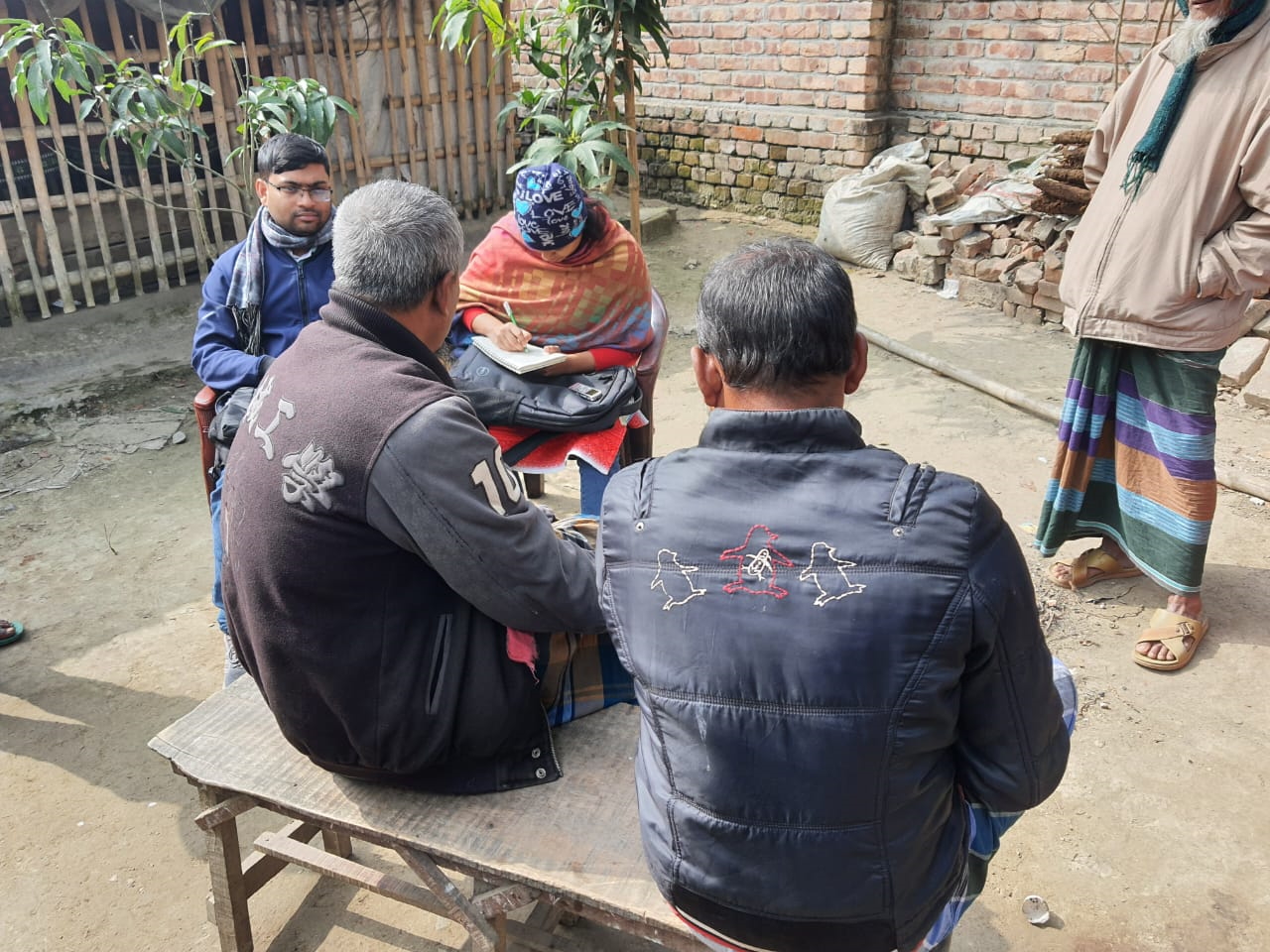CLEAR aims to build a consortium of research partners to deliver policy relevant Covid-19 research and evidence for Bangladesh, support increased evidence uptake among policymakers and share lessons from the Covid-19 response to better prepare for future shocks.
We are offering research grants of up to £100,000 GDP (approx. 115,00,000 BDT/ 1 crore 15 lacs) for 1 year research projects, to start in September 2022. Please note our call for expressions of interest is now closed.
We’ve put together the following list of FAQs to help guide those interested in becoming research partners. These are based on the enquiries we have received up to now and we will add to them as new queries come in.
If you have a question that is not covered here then please get in touch via our email address: [email protected]
A 2.5 year long programme to generate new policy-relevant research that will support COVID-19 recovery and increase resilience to future shocks in Bangladesh.
CLEAR will:
- Deliver policy relevant COVID-19 research and evidence tailored to Bangladesh
- Promote evidence uptake for policy and programming
- Learn lessons from the COVID-19 response to better prepare for future shocks
CLEAR is funded by the UK Government’s Foreign Commonwealth and Development Office (FCDO) and coordinated by the Institute of Development Studies (IDS). BRAC Institute for Governance and Development (BIGD) is supporting the design of the research agenda and policy engagement activities.
Two types of research grant will be offered under the CLEAR programme:
- Large grants: Large grants will be awarded for significant new research on CLEAR priority themes. They will be awarded through a competitive call process opening in April 2022. Eight large grants of GBP £100,000 (approx. 115,00,000 BDT/ 1 crore 15 lacs) each will be awarded to research organisations working in Bangladesh.
- Small grants: Small grants will be awarded for focused and responsive research projects to explore emerging issues or to generate evidence to address opportunities to influence decision-making or programme design. Grant size for small grants will be of GBP £20,000-25,000 (approx. BDT 20,00,000-25,00,000 / 20-15 lacs).
Agile grants are small awards designed to support additional work on existing research projects that match the priority themes. For example, they might support an additional round of survey data collection or the extension of a study to look at a new population or group. The maximum grant size for agile grants is up to GBP £50,000 (approx. 50,00,000 BDT) per grant with a total amount of £200,000 (230,00,000 BDT/ 2 crore 30 lacs) in funding available. Agile grants have been already awarded by invitation and there are currently no plans to make further awards in this category.
CLEAR has commissioned a series of scoping papers and consultations to inform the design of the research agenda for the programme and further information on this will be published to accompany the Call for Proposals. However, the expectation is that CLEAR will focus on the secondary impacts of Covid-19 on health, education, and social protection covering four broad thematic areas:
- Poverty and vulnerability
- Service delivery, accountability and governance
- Rights of marginalised population and disadvantaged groups
- Innovations
We expect that the programme might also generate evidence on, for example, shifts in state- citizen relationship, particularly negotiations around protection of worker’s/labour rights, gender equality and rights of other marginalised groups.
Dr Imran Matin of BIGD gave some initial reflections on possible research themes emerging from some of the scoping papers at the CLEAR launch event. The video can be viewed here (from 34 minutes).
Research grants will need to be completed within one year from the award date.
Yes. One organization can apply for more than one grant type (small/ large) as well as in multiple grants within the same grant type. However, given the small number of grants available, we encourage you to prioritise!
No. Applicants will need to be based at a suitable institution with proven capacity to conduct research and manage grants in line with the financial ethical and governance requirements of the programme. Detailed information on these requirements will be published along with the Call for Proposals.
Yes, Bangladeshi organizations (NGOs, Academic organizations, companies eligible to receive grants) can apply individually or as part of consortia for the large grants. We expect that all grant recipient consortiums should include at least one Bangladesh-based organization.
Yes, international organisations can apply for CLEAR research grants as part of consortia. We expect that all consortia should include at least one Bangladesh-based organisation.
At least one of the applicant organizations under the consortium must hold an NGO Bureau permission to receive the grant.
We do not have any specific target population, sectors or study locations as criteria for the research proposals. As long as proposals cover one of the major themes (see above) they can make a case to study any group, industry or geographic area. When considering your research focus it would be sensible to consider whether your proposed research is too similar to work already being done and funded under other FCDO or other programmes.
No, we are not limiting the scopes in terms of the choice of research methods and research design. We are open to qualitative, quantitative and mixed-methods research proposals.
Sign up to our mailing list to receive updates from CLEAR including calls for proposals, news about CLEAR research grants and forthcoming events. Or visit our website:
Please send us an email at: [email protected] with your specific queries.
